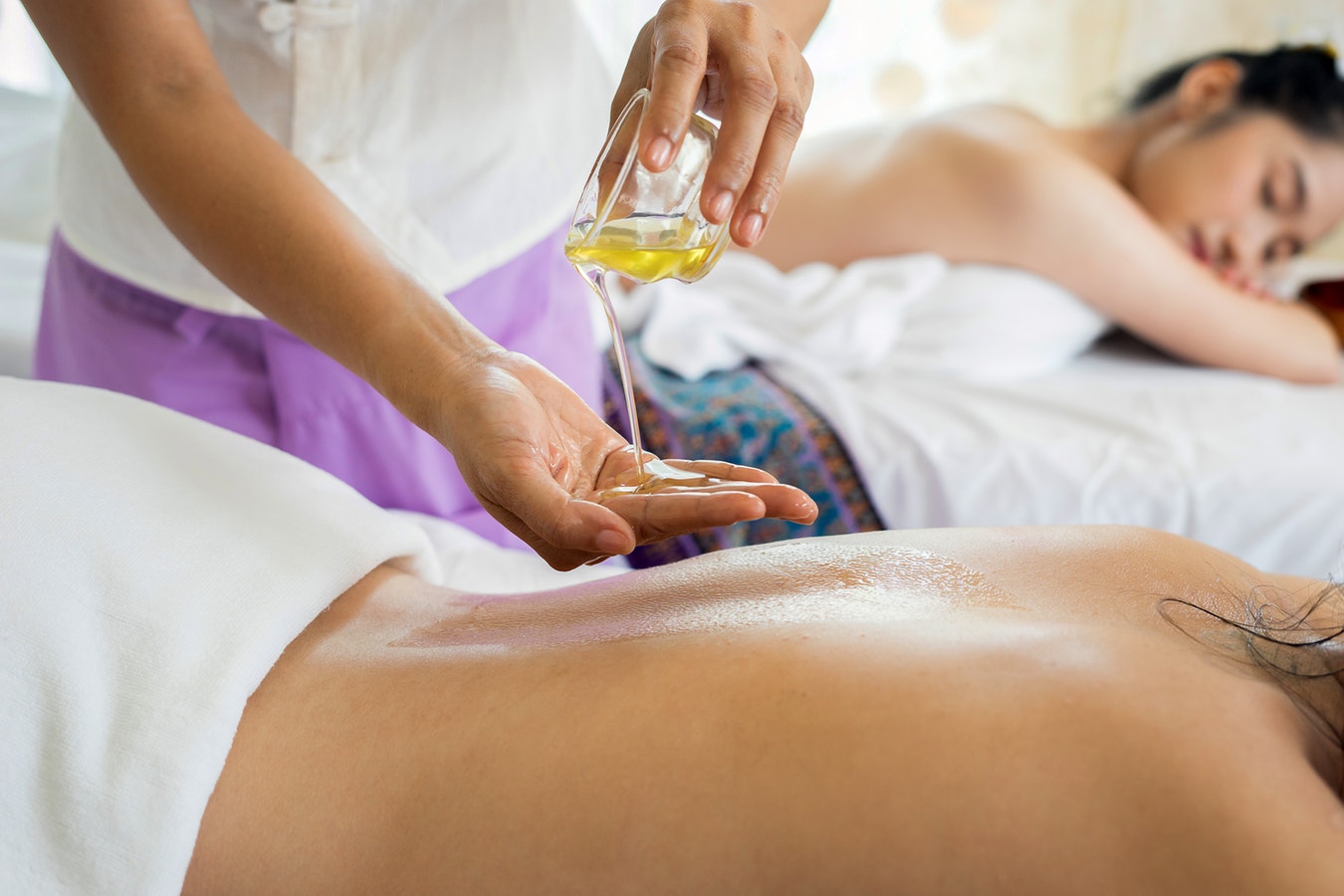
Body + Mind is reader-supported. We may earn an affiliate commission when you buy through some of the links on our site.
Women experiencing occasional itchy, dry skin may suffer no underlying infection. Allergies to certain substances and even the shower water in certain areas can cause skin irritation. Once you do pay a visit to the doctor to rule out any more serious causes, you can treat your dry, itchy skin at home naturally through the use of essential oils. Here’s how to use essential oil for dry, itchy skin.
Oregano oil is Mother Nature’s ultimate antibiotic. Oregano oil contains carvacrol, a powerful weapon in the war against the staph bacteria behind many common infections. In one study, a combination of oregano oil and silver nanoparticles decimated even antibiotic-resistant bugs.
Oregano oil also acts as an anti-inflammatory and helps in the healing of minor wounds and cuts, so if you’ve nicked yourself shaving, a dab of oregano oil mixed with a coconut oil base can help ease those yucky red bumps. Coconut oil makes for the perfect carrier oil as it is non-greasy even on oily skin, absorbs wonderfully and avoids going rancid. Always blend essential oils with a carrier to prevent further irritating the skin.
Like oregano oil, myrrh essential oil contains strong antimicrobial properties. Myrrh also works as an astringent, making it a great tool for staunching the flow of blood from nicks. Myrrh also has anti-fungal properties, so if certain infections cause you itching and misery, reaching for this herb can help.
Myrrh can also help regulate hormonal imbalances leading to irregular or heavy menstrual periods. For this reason, though, pregnant women do well to avoid myrrh, as its uterine-stimulating properties may lead to miscarriage.
If you think lavender is only good for stuffing fragrant sachets for placements in pillows where the aroma helps ease you into dreamland, think again. This herb can help you out when you’re feeling itchy and uncomfortable, too. And, as an added bonus, adding a few drops of lavender oil to your desktop diffuser can ease the symptoms of PMS.
Cloves have long found use among Ayurvedic medical practitioners to strengthen everything from the immune system to teeth. This powerful oil contains a substance known as eugenol. Eugenol has powerful antimicrobial properties and can soothe both itchy bumps along your panty line as well as help facial or back acne heal more quickly. The oil gently exfoliates skin, so dabbing a few drops diluted in a carrier oil over the face twice per day can help keep your skin glowing with health, too.
Cinnamon has antifungal and antimicrobial properties, and the heavenly scent brings back memories of cookies baking at grandma’s house. Not only can cinnamon help stop itchiness, but it also increases blood flow when applied topically.
Cinnamon helps reduce menstrual cramps, too, so try rubbing a diluted bit on your lower abdomen when the cardinal visits. Suffering from arthritis or carpal tunnel syndrome? Using diluted cinnamon oil as a lotion and wearing gloves can make typing less painful.
You may not know what a mast cell is, but scientists know these cells are the culprits responsible for triggering allergic reactions. If you start itching after getting a new sexual partner, you may have a mild allergic reaction to his sperm. While this usually resolves itself with time as your body chemistry adjusts to his, in the meantime, use a few diluted drops of geranium oil to alleviate your discomfort.
Like many other herbs on this list, eucalyptus contains broad-spectrum antimicrobial properties, making it an effective remedy for itching caused by bacterial or fungal infections. In fact, eucalyptus oil makes for an excellent way to remove toxic mold from the home as well. Simply add a few drops to your vacuum cleaner bag or favorite surface cleaner. To relieve minor skin irritations, put a few dilute drops on a cotton ball and dab two or three times daily.
If you reach for a cup of chamomile when you feel stressed or anxious, take comfort in the fact that the herb does double duty when dry, itchy skin occurs. Chamomile reduces redness and inflammation from rashes like nothing else. Just add a few drops to your favorite moisturizer or, better yet, a bit of coconut oil. You can wrap a cotton ball or two soaked with a dilute chamomile solution up in plastic cling wrap to toss in your purse and dab on your break.
Sandalwood contains a substance known as santalol, which has many therapeutic applications. The anti-inflammatory compounds work in a similar fashion that over-the-counter painkillers such as ibuprofen do. The oil decreases cytokines and chemokines, chemicals that spur an inflammatory response, making the oil ideal for easing anything from sunburn to itchy rashes.
Rose contains methyl-eugenol, which acts as both an antiseptic and an anesthetic. Therefore, this essential oil helps heal infected skin leading to itchiness while also reducing the need to scratch away like mad. Plus, rose simply smells heavenly — who wouldn’t want to be perfumed thus?
Now that you know which essential oils can help you when your skin feels like sandpaper, nothing can stop you from taking charge of your health and feeling better quickly. Use essential oil for dry, itchy skin and get back to comfort in no time.
Your email address will only be used to send you our newsletter, and at any time you may unsubscribe. For more information, see our Privacy Policy.